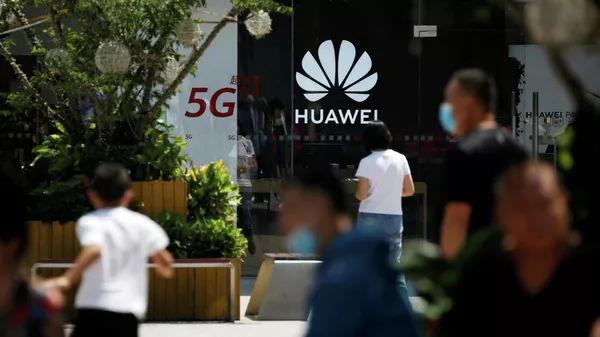
The Wall Street Journal, the flagship of U.S. business press, published a “shocking” report from Beijing: according to information from unnamed sources, China plans to retaliate against European companies for Huawei sanctions imposed by the U.S. and the U.K.
The supposed logic of this retaliation, according to American journalists, is as follows. The United States is actively putting pressure on its European and British counterparts, and also on all countries which are, somehow, vulnerable to American blackmail tactics. The aim is to make them boycott Huawei, which is entangled in a real diplomatic, economic and espionage war. One of Huawei’s senior managers was imprisoned in Canada (the U.S. accuses her of crimes against American national interests), while the British government backtracked on the decision that allowed the Chinese company to play a crucial role in developing the U.K.’s 5G network. Other EU countries, for instance, Germany, are considering similar sanctions. The main argument being made to convince Europe to impose costly sanctions and thus damage its businesses, infrastructure and reputation, is the presence of European companies in China, whose products can also be used in 5G networks. Those companies are Nokia and Ericsson.
The Wall Street Journal reports that “Beijing is considering retaliating against Nokia and Ericsson, should European Union members follow the lead of the U.S. and U.K. in barring China’s Huawei from 5G networks. China’s Ministry of Commerce is considering export controls that would prevent Nokia and Ericsson from sending products it makes in China to other countries.”
The newspaper’s sources note that the idea of banning Nokia and Ericsson from sending products made in China is a “worst-case scenario that Beijing would use only if European countries came down hard on Chinese suppliers and banned them from their 5G networks.”
Considering such a scenario, the EU and other countries banning Chinese equipment under U.S. pressure would face an unforeseen problem of lacking an alternative, despite the theoretical existence of the required technology. Of course, it is possible to transfer production from China to another country, but this involves additional costs. In fact, not only would this cost billions of euros, but also require a substantial amount of time. Therefore, under this scenario, those who cave in to Washington’s pressure would themselves succumb to technological and infrastructural lag at a time when 5G networks are becoming important elements of economic development.
It is easy to deduce why the Wall Street Journal published this report. An intention to discredit China is clearly evident in the disinformation campaign targeting any forms of economic (or cultural) presence of China in Europe and around the world.
Washington, as evidenced by actions of Donald Trump’s administration, is trying to undermine the core of Chinese production, all companies which create the majority of tax income, jobs and exports for the United States’ main competitor. With that, the complication lies in the fact that China’s manufacturing industry and its export potential is the result of decades’ worth of Western investment to counteract a weakening Soviet Union.
During those decades, American and European companies, tempted by cheap labor, leniency from the state and very soft environmental regulation, have invested hundreds of billions of dollars in China’s production capacity. Now, the White House is trying to force both American and European companies to refuse any potential profit from these investments and bear the costs of relocating production facilities.
There are not many companies that want to do this voluntarily, and now the U.S. is trying to use a carrot and stick strategy. The stick takes the form of the disinformation campaign, aimed at scaring away European countries with the prospect of expropriating their Chinese assets, or imposing some kind of Chinese sanctions.
Beijing understands this very well and is trying to respond as quickly as possible to such media attacks. Officially, the response to the World Street Journal’s insider report came during a briefing by the Chinese Foreign Ministry and through the state-funded Global Times.
“China on Tuesday dismissed a Wall Street Journal report suggesting that it is considering retaliation against two European telecom companies – Nokia and Ericsson – as ‘fake news’ that is aimed at undermining the ‘good’ China-EU relationship, saying its huge market will be open to European companies. Retaliating against Sweden-based Ericsson and Finland-based Nokia are not only irrelevant in the rising tensions between China and the US-led ‘Five Eyes’ alliance over Huawei, but also runs counter to China’s opening-up policies,” Chinese officials and industry insiders said.
Paradoxically, the main proponent of deglobalization today is the United States, the very country that built the current global economy. It is unlikely that this course will change even if Joe Biden is elected president, especially since Biden’s platform has already adopted some elements of Trump’s economic nationalism. It is almost inevitable that the world will be split into “trading blocs,” and that protectionism in all its forms will become the main trend in economic policy. In this context, Russia occupies an advantageous position: it is self-sufficient in terms of security, food and energy. Those resources will always be in demand in the world market, regardless of which “trading blocs” it will be divided into. Russia will always find companies to sell it the technology it demands, and this is a great advantage for the country in the coming decades.

Leave a Reply
You must be logged in to post a comment.